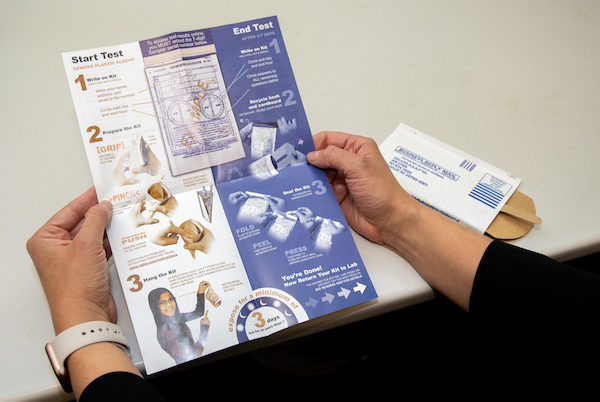This time of year most of us spend more time indoors where the risk of exposure to air pollutants, including radon, can be significantly higher.
Radon is a radioactive gas that is linked to lung cancer. It is unnoticeable in homes because you cannot see, taste or smell it. According to the Environmental Protection Agency (EPA), radon is the number one cause of lung cancer among non-smokers and is responsible for about 21,000 lung cancer deaths each year.
With more people working from home and cooped up indoors during winter months, it is especially important to know about potential health risks and how to protect your family from radon.
All counties in the Kansas City region fall in EPA’s Radon Zone One, meaning homes have the highest potential to test above the recommended radon level assigned by EPA.
“We urge everyone, especially those residing in areas designated as EPA Radon Zone One, to protect their health and their loved ones by testing their homes for the presence of radon gas, which is the leading cause of lung cancer in nonsmoking Americans,” said EPA Region 7 Administrator Meg McCollister.
During January, EPA Region 7 will hold outreach events at Kansas City Public Library branches in Missouri to raise awareness of radon exposure and encourage residents to have their homes tested.
Where to find home testing kits
Testing your home for radon is easy and inexpensive.
EPA Region 7 staff will be available at the following Kansas City Public Library branches to discuss the dangers of radon, encourage radon testing, and offer free radon testing kits (as supplies allow):
- Saturday, Jan. 21, noon to 4 p.m., at Plaza Branch, 4801 Main St., Kansas City, MO 64112
- Tuesday, Jan. 24, 11 a.m. to 3 p.m., at Southeast Branch, 6242 Swope Pkwy., Kansas City, MO 64130
- Saturday, Jan. 28, noon to 4 p.m., at Waldo Branch, 201 E. 75th St., Kansas City, MO 64114
- Tuesday, Jan. 31, 11 a.m. to 3 p.m., at Westport Branch, 118 Westport Rd., Kansas City, MO 64111
Missouri residents can also order a free radon testing kit from the Missouri Department of Health & Senior Services.
For Kansas homeowners, Kansas State University’s Kansas Radon Program (KRP) offers inexpensive radon testing kits at several county extension offices including the Johnson County and Wyandotte County extension offices. Kits are $15.
Radon testing kits can also be found online or in home improvement stores for less than $20.
Testing for Radon

If you are testing with a home test kit, instructions vary by individual test kits. In general, the testing involves setting up the kit to run 2 or 3 consecutive days following specific instructions such as keeping windows and outside doors closed as much as possible. Once you’ve finished the test, you reseal the package and send it to the lab specified on the package. You should receive test results in a few days.
The EPA’s A Citizen’s Guide to Protection Yourself and Your Family from Radon has additional guidance and recommendations on how to use home test kits.
Mitigating for Radon
If radon testing results are above the EPA’s 4pCi/L recommended limit, mitigation is recommended to prevent against the risks of lung cancer.
For existing homes, radon reduction systems can reduce radon levels in your home by up to 99%, according to the EPA. The costs can vary depending on the size and design of your home. A radon mitigation system costs between $771 to $1,185, with the national average at $978.
When building a new home, consider installing radon-resistant new construction. It typically costs $250 – $750.
The EPA offers nationwide resources for radon information, testing kits and professional mitigation services.
To view a map of EPA’s Radon Zones in your county or state, visit EPA’s website.
To learn more about the health risks of radon, visit the EPA’s website.
Radon Test Photo Credit: U.S. EPA.
